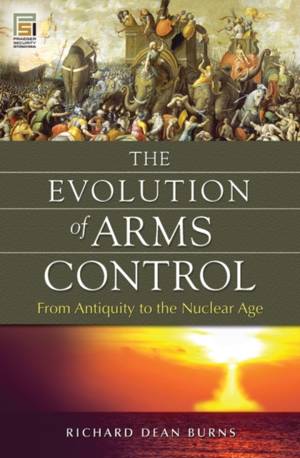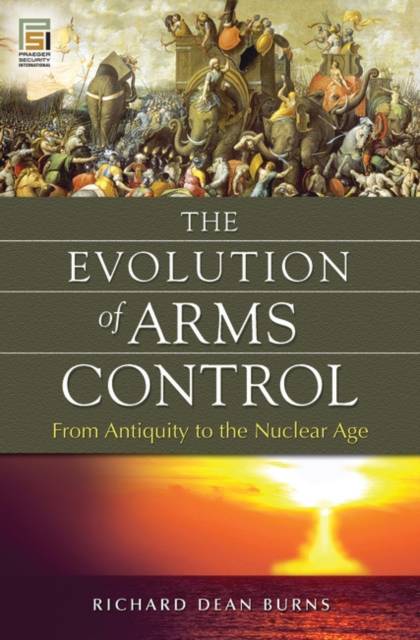
Je cadeautjes zeker op tijd in huis hebben voor de feestdagen? Kom langs in onze winkels en vind het perfecte geschenk!
- Afhalen na 1 uur in een winkel met voorraad
- Gratis thuislevering in België vanaf € 30
- Ruim aanbod met 7 miljoen producten
Je cadeautjes zeker op tijd in huis hebben voor de feestdagen? Kom langs in onze winkels en vind het perfecte geschenk!
- Afhalen na 1 uur in een winkel met voorraad
- Gratis thuislevering in België vanaf € 30
- Ruim aanbod met 7 miljoen producten
Zoeken
Omschrijving
The Evolution of Arms Control: From Antiquity to the Nuclear Age is the first world history of arms control through time.
Drawing on his knowledge of the comparative history of warfare and arms control across preliterate, ancient, medieval, and modern polities, Richard Dean Burns focuses longitudinally on such perennial arms control issues as negotiation, verification, and compliance. Although he does not, for example, allege that war elephants and nuclear weapons are of equal destructive potential, he does discern instructive similarities between Carthage in 202 BCE and Iraq in 1991 AD. Arms control and disarmament measures have been pursued and adopted throughout the history and prehistory of human warfare: sometimes as protocols recognizing evolving humanitarian taboos; sometimes as terms imposed by the victors on the vanquished; and sometimes as accords negotiated between rivals fearful of mutual destruction. Arms control measures ramped up in significance and urgency at the dawn of the 20th century by the introduction of rapid-fire weapons, aircraft, chemical agents, and submarines, and again at mid-century with the advent of weapons of mass destruction--nuclear, chemical, and bacteriological--with sophisticated delivery systems. As Burns makes clear, the enormous increase in destructive potential brought about by thermonuclear weaponry essentially changed the nature of war and, therefore, of arms control.Specificaties
Betrokkenen
- Auteur(s):
- Uitgeverij:
Inhoud
- Aantal bladzijden:
- 264
- Taal:
- Engels
- Reeks:
Eigenschappen
- Productcode (EAN):
- 9780313375743
- Verschijningsdatum:
- 22/06/2009
- Uitvoering:
- Hardcover
- Formaat:
- Genaaid
- Afmetingen:
- 163 mm x 236 mm
- Gewicht:
- 544 g

Alleen bij Standaard Boekhandel
+ 206 punten op je klantenkaart van Standaard Boekhandel
Beoordelingen
We publiceren alleen reviews die voldoen aan de voorwaarden voor reviews. Bekijk onze voorwaarden voor reviews.









